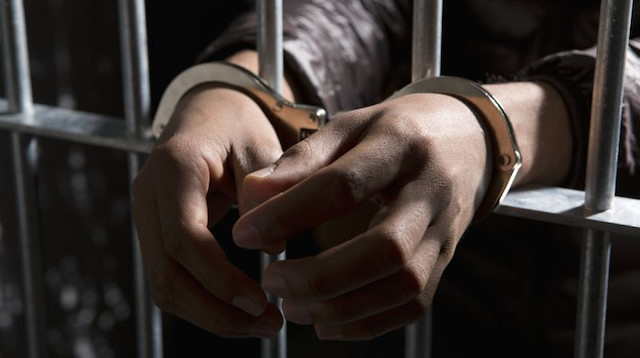
Under 1988 pact, neighboring rivals also exchange lists of nuclear installations and facilities
In a gesture of normalcy amid tensions between the two countries, Pakistan and India on Wednesday exchanged lists of civilian prisoners in their custody.
Despite tensions over the divided Kashmir region and other issues, the lists were exchanged simultaneously in Islamabad and New Delhi under a 2008 pact between the two countries.
Pakistan handed over a list of 282 Indian prisoners (55 civilians and 227 fishermen) languishing in Pakistani jails to the Indian High Commission in Islamabad, said a statement from Pakistan's Foreign Ministry.
India, for its part, handed over a list of 267 Pakistan civilian prisoners and 99 fishermen to the High Commission of Pakistan in New Delhi, according to an Indian External Affairs Ministry statement.
Under the 2008 agreement, both countries are required to exchange lists of prisoners in each other’s custody twice a year: Jan. 1 and July 1.
Meanwhile, the two neighbors also exchanged lists of their nuclear installations and facilities in accordance with the Agreement on Prohibition of Attacks against Nuclear Installations and Facilities.
The 1988 agreement stipulates that both countries inform each other of their nuclear installations and facilities every Jan. 1. This has been done every year since 1992, when the pact entered into force.
- Nuclear powers
Pakistan and India are among a small handful of countries with nuclear arsenals. India joined the nuclear club long before Pakistan, in 1974, prompting Islamabad to follow suit.
Pakistan silently developed its own nuclear capability in the 1980s, when it was an ally of the U.S. in the first Afghan war against the crumbling Soviet Union.
It did not conduct any nuclear tests until India carried out a series of tests in 1999. Only three weeks later, Pakistan conducted six successful tests, stoking fears of a nuclear war between the longtime rivals.
According to the Stockholm International Peace Research Institute, India currently possesses 80-100 nuclear warheads, while Pakistan has 90-110.
Hello, the comments you share on our site are a valuable resource for other users. Please respect other users and different opinions. Do not use rude, offensive, derogatory, or discriminatory language.
The floor is all yours.








